Pain Medicine (Multidisciplinary) Fellowship
The Pain Medicine (Multidisciplinary) Fellowship is a collaboration between Northwestern Memorial Hospital (NMH) and Shirley Ryan AbilityLab, integrating several areas of pain medicine. These include:
- Interventional pain management.
- Chronic pain rehabilitation.
- Cancer pain and palliative care.
- Acute pain.
- Pediatric chronic pain.
- Neurology.
- Psychiatry.
- Clinical research.
Our faculty members are recognized experts in pain medicine, regional anesthesia and rehabilitation. They are active in the American Society of Regional Anesthesia, the American Society of Anesthesiologists and the American Academy of Physical Medicine & Rehabilitation. They have authored and edited major textbooks and serve on the editorial boards for Regional Anesthesia and Pain Medicine, Clinical Journal of Pain and MD Consult-Pain Medicine.
Additionally, our faculty actively conduct clinical research and publish papers, reviews, abstracts and book chapters. All fellows present at least one abstract at a national scientific meeting each year.
Program Director
Heejung Choi, MD
Assistant Professor of Anesthesiology
About the Program
Goals & Learning Objectives
Understanding Pain Mechanisms
Fellows gain a deep understanding of pain pathways, neurochemistry, and the mechanisms behind various pain syndromes, including:
- Acute pain.
- Back pain.
- Neuropathic pain.
- Myofascial syndromes.
- Headache.
- Cancer pain.
Acute Pain Management
Fellows manage:
- Postoperative pain.
- Postdural puncture headache.
- Chest trauma (e.g., rib fractures, flail chest).
Techniques include:
- Epidural opioids and local anesthetics.
- Peripheral nerve blocks and catheters.
- IV patient-controlled analgesia (PCA).
- Intercostal nerve blocks.
Inpatient Pain Consultation
Fellows rotate through inpatient consults for benign and cancer-related pain (excluding postoperative pain).
Cancer Pain & Palliative Care
Training includes:
- Etiologies and management of cancer pain.
- Longitudinal exposure to cancer and palliative care patients.
- Multidisciplinary and interventional approaches across settings.
Chronic Noncancer Pain
Fellows treat conditions such as:
- Low back pain.
- Myofascial pain.
- Headache.
- Pelvic pain.
- Neuropathic pain (e.g., CRPS, postherpetic neuralgia).
Approaches include pharmacologic, interventional, psychological and rehabilitative strategies.
Neuroimaging Interpretation
Fellows learn to interpret:
- MRI and CT of the brain and spine (cervical, thoracic, lumbar).
- Imaging relevant to chronic pain assessment.
Interventional Procedures
Fluroscopy-Guided Techniques
Performed at the Lavin Outpatient Pain Medicine Center:
- Discography, intradiscal techniques
- Radiofrequency ablation
- Intra-articular injections
- Vertebral augmentation
- Spinal cord stimulators
- Neuraxial opiate trials and management
Surgical Implants & Perioperative Care
Fellows assist with:
- Permanent implants (SCS, nerve stimulators, infusion pumps).
- Battery replacements, epidural ports.
- Wound checks, suture removal, pump refills, reprogramming.
Fellows are expected to show progressive independence in procedural skills.
Multidisciplinary Rotations
Fellows rotate through:
- Ann & Robert H. Lurie Children’s Hospital of Chicago (Pediatric pain).
- Shirley Ryan AbilityLab (Rehab, neurology, psychology).
- NMH Hospice & Palliative Care Service.
They also engage with:
- Psychiatry attendings.
- Specialists (e.g., PTs, neurosurgeons, spine surgeons, neuroradiologists, urologists, chiropractors).
- Multidisciplinary lectures and conferences.
Research & Scholarship
Fellows participate in:
- Monthly Pain Medicine Journal Club.
- Quarterly Anesthesiology Journal Club.
- Research seminars led by attendings.
They may co-author case reports, reviews, original articles or book chapters.
Research requirement:
Each fellow is assigned a faculty mentor to guide them through a project and submit their work to a regional or national pain meeting.
Teaching, Administration & Systems-Based Practice
Fellows actively contribute to education and administration within the Pain Medicine program. Responsibilities include:
- Delivering formal and informal lectures to residents and medical students.
- Presenting cases and lectures at departmental events, including Grand Rounds.
- Leading one Morbidity/Mortality Case discussion during the academic year.
- Completing a post-conference self-evaluation after M&M presentations.
Administrative exposure includes:
- Pain practice setup, billing, coding, compliance and JCAHO standards.
- Rotating call schedule management among fellows.
- Participation in process improvement projects focused on patient safety and best practices.
- The program director provides a timeline.
- Completion is mandatory; failure may result in probation or suspension.
Anesthesiology Principles & Patient Safety
Fellows gain hands-on experience in anesthesiology through clinical rotations and procedural support:
-
OR rotation (unless exempt due to prior anesthesiology training)
- Pre-anesthetic assessment
- IV sedation, airway management, spinal and epidural techniques
- Management of perianesthetic complications
-
Conscious sedation during interventional procedures and acute pain service duties
-
Participation in lectures on:
- Radiation safety.
- Addiction and dependence in pain practice.
- Physician impairment and fatigue.
Fellows also engage in monthly morbidity and mortality discussions led by attending physicians.
Optional Psychiatry Exposure
Fellows may choose to rotate with addictionologists and psychiatrists at NMH, focusing on:
- Evaluation of patients with psychiatric or addiction disorders.
- Completion of 15 mental status exams, with five supervised by a psychiatry attending.
Rotations
Operative Services, Department of Anesthesiology, NMH
During the consecutive four-week rotation, the fellow will demonstrate competency in:
- Obtaining IV access in a minimum of 15 patients.
- Basic airway evaluation and management, including mask ventilation in a minimum of 15 patients and endotracheal intubation in 15 patients.
- Management of sedation, including direct administration of sedation to a minimum of 15 patients
- Administration of neuraxial analgesia, including placement of a minimum of 15 thoracic or lumbar epidural injections via the interlaminar technique.
- The fellow will obtain a medical history pertinent to the delivery of anesthesia services and appropriately relay this information to the supervising Anesthesiology Attending.
- The fellow will describe the anesthesia plan and/or anesthetic treatment options to patients and family before surgery/procedure.
- The fellow will communicate the patient’s history and perioperative course to PACU staff in the postoperative period during the “sign out” exercise.
- The fellow will communicate appropriately with ancillary staff and attending staff in the OR, will participate in Pre-Operative Team Briefing and “Time-Out” exercises in addition to any other pertinent patient safety procedures.
- The fellow will accept guidance and instructions from the Anesthesiology Attendings.
Cancer Pain Program, NMH Palliative Care Unit
During the intensive, consecutive two-week rotation, the fellow will:
- Assess and manage pain and non-pain symptoms experienced by patients with terminal disease(s).
- Maintain longitudinal clinical involvement in the management of cancer patients and hospice patients.
- Understand the clinical approach to the treatments that comprise multidisciplinary cancer pain care.
- Understand strategies to integrate pain management into this multidimensional treatment model, which may be integrated with continuity of care or inpatient care.
- Identify issues associated with the prognosis and terminal care of patients with cancer and non-cancer diseases.
- Know the current literature related to pain management in the terminally ill patient.
- Discover the cultural factors influencing palliative care and explore various communication techniques used to overcome these challenges.
- Examine the legal and ethical concerns related to pain control at the end of life care as well as the administrative and logistic issues that may affect treatment(s).
Shirley Ryan AbilityLab, Multidisciplinary Rehabilitation
A once-weekly rotation follows this four-week rotation for one month. During these rotations, the fellow will:
- Conduct a complete psychiatric/psychological history with special attention to psychiatric and pain co-morbidities.
- Conduct complete mental status examinations and demonstrate this ability to a faculty observer.
- Understand how to perform a full musculoskeletal history and the appropriate components of a neuro-musculoskeletal examination as they relate to pain problems.
- Gain significant hands-on experience in the neuromusculoskeletal history and physical examinations, and demonstrate proficiency in the clinical evaluation of these patients.
- Observe and perform a comprehensive musculoskeletal and appropriate neurologic history and examination with emphasis on both structure and function as it applies to diagnosing acute and chronic pain problems and developing rehabilitation programs for them, including assessments of static and dynamic flexibility, strength, coordination and agility for peripheral joint, spinal and soft tissue pain conditions.
- Gain an understanding of the natural history of various musculoskeletal and neurologic pain disorders and be able to appropriately integrate therapeutic modalities and surgical intervention in the treatment algorithm.
- Understand the indicators and interpretation of electrodiagnostic studies; fellows will gain significant hands-on experience in musculoskeletal and neuromuscular assessment and demonstrate proficiency in clinical evaluation and rehabilitation plan development.
- Discuss with a physiatrist/neurologist the issues associated with pharmacologic management of pain.
- Understand the role of psychological testing as part of the assessment of a patient’s suitability for interventional procedures; observe with a licensed psychologist some of the psychological treatments of pain, including biofeedback therapy, psychosocial therapies, behavioral and cognitive therapies and relaxation techniques.
- Observe psychological evaluations as performed by a psychologist with expertise in pain management.
- Observe physical therapy treatments for patients with back pain and other chronic pain syndromes, and understand how therapeutic modalities are integrated into treatment plans.
- Become familiar with basic neuroimaging; identify significant findings on MR, CT and radiographs.
- Participate in multidisciplinary patient care conferences and develop rehabilitation plans for patients with chronic pain.
- Document longitudinal patient care experiences and new patient evaluations in case logs.
During the consecutive four-week rotation (a half-day each week), the fellow will:
- Describe the approach to evaluation and treatment of pediatric patients with pain complaints.
- Understand the reasons pain is viewed as difficult to evaluate in children, is often not recognized by the healthcare personnel and, consequently, is poorly treated.
- Identify the challenges in evaluating pediatric patients with pain and learn how to utilize available tools for assessing pain in this age group.
- Discuss the need for a multidisciplinary team approach to meet the needs of children and adolescents with chronic pain syndromes.
- Recognize the importance of treating pain in infants, children and adolescents to enhance their quality of life and to reduce the adverse impact of chronic pain and stress on the course of their illness.
- Identify how complementary medicine techniques like acupuncture, massage and counseling are integrated into the care plan of the pediatric pain patient.
Clinical Responsibilities
The fellow is expected to participate in the section's clinical activities. These include making rounds on the postoperative pain patients, seeing inpatient consults, performing neuraxial and peripheral nerve blocks, seeing patients in the outpatient pain clinic and performing interventional procedures therein. The fellow is expected to:
- Demonstrate improvement in manual skills with less need for attending procedure “rescue” as training progresses.
- Demonstrate improved accuracy in assessing history and physical examination findings as training progresses, as validated by supervising attendings who directly observe the fellow’s history taking and examination skills.
- Be involved in the division's research activities.
- Supervise residents and medical students rotating through the service.
- Have no operating room call responsibilities.
- Rotate in taking out-of-hospital calls to answer questions, pages, etc., related to the management of inpatient consults, patients on epidural opioid infusions and continuous peripheral nerve blocks, as well as pain clinic patients. The fellows will cooperatively create and manage a pain call schedule amongst themselves, in conjunction with the APNs on the Acute Pain Service.
- See emergency consults such as postdural puncture headache in the emergency room, acute vasospasm conducive to sympathetic blockade or patients with impending ventilatory failure secondary to fractured ribs. These emergency consults are rare. The fellow will communicate with the covering pain attending and discuss/plan management of these patients.
- Rotate in making Acute Pain Service rounds on weekends with the attending on call. In most cases, the attending makes rounds alone on Sundays when the number of inpatients on the service is small.
- Regularly tabulate his experience logs as required by the Accreditation Council for Graduate Medical Education and the American Board of Anesthesiology. These logs should be kept in an electronic database. They will be reviewed regularly by the program director to ensure that program requirements are being met appropriately. Failure to complete these logs promptly may result in probation or suspension.
Educational Responsibilities
Educational Activities & Lectures
Fellows and rotating residents participate in lectures at the Anesthesiology and Pain Medicine Clinic four days a week (Monday through Thursday). The lecture schedule is created monthly and may feature:
- The attending physician covering clinic.
- A pain fellow.
- A rotating resident.
- An invited visiting lecturer.
In addition, monthly Radiology Rounds are held for pain fellows, where a pain attending reviews notable spine and joint imaging in the context of pain management.
Fellow-Led Presentations
Pain fellows are expected to deliver in-depth, research-based lectures, more advanced than those given by residents. These presentations should be grounded in recent original studies or reviews.
- Presentations must be submitted in PowerPoint format to the program director or designee.
- Files are uploaded to New Innovations and added to each fellow’s Educational Portfolio.
- A pain clinic attending will review presentations to ensure originality and prevent plagiarism.
- Failure to submit materials on time may result in probation or suspension.
Multidisciplinary Learning Opportunities
Throughout the academic year, fellows attend a variety of interdisciplinary conferences and lectures, including:
- Monthly Interdisciplinary Spine Conferences.
- Bimonthly Neurosurgery/Pain Conferences.
- Case conferences and lectures during Shirley Ryan AbilityLab rotations.
- Monthly Anesthesiology Fellow Forum meetings focused on teaching skills and academic development.
- A syllabus and schedule are provided at the start of the year.
Fellows are excused from clinic duties to attend these sessions unless extenuating circumstances arise.
Hands-On Training
Fellows are required to participate in on-site cadaver workshops led by the program director. These cover interventional procedures such as:
- Spinal cord stimulators.
- Intrathecal pumps and catheters.
- Upper cervical nerve root injections.
- Intradiscal and vertebral augmentation procedures.
Additionally, fellows attend three mandatory surgical training workshops at the Northwestern Center for Advanced Surgical Training. These three- to four-hour sessions, proctored by general surgeons and pain attendings, focus on suturing, tissue handling and wound management.
Study materials are provided in advance and must be reviewed before attendance. Fellows are relieved of clinical duties to participate when possible.
Ongoing Learning & Journal Club
Fellows are expected to:
- Review the assigned reading relevant to daily clinic care, including during away rotations.
- Present selected classic and contemporary articles during journal club meetings, in collaboration with pain attending faculty.
Evaluations
Fellows will take the ABA Pain Medicine In-Training Exam in the spring of their training year. The fellow is encouraged to have a mock oral examination, near the end of their training, to help in their preparation for the oral examination portion of the American Board of Anesthesiology (ABA), if applicable.
The fellows are evaluated by attending staff quarterly. In addition, the fellows will be evaluated by supervising faculty during away rotations at the completion of an individual rotation experience. The fellows will be able to access their evaluations through New Innovations. Fellows will electronically sign two semi-annual performance summary evaluations. The program director will meet with each fellow at least twice during the fellowship to review goals and objectives, assess and communicate areas for fellow improvement and to identify any issues or problems with the curriculum, clinical experience or supervising faculty.
The fellows are asked to provide evaluations of the faculty every quarter and the program at the end of their training. In addition, the fellows should complete evaluations of the residents rotating through the outpatient pain center monthly. All evaluations are in New Innovations.
Benefits
In addition to McGaw Medical Center of Northwestern University benefits and wellness resources, Pain Medicine Anesthesiology fellows receive:
- Memberships to the American Pain Society (APS) and American Society of Regional Anesthesiology and Pain Medicine (ASRA).
- Funding to attend the ASA, ASRA or an academic/research meeting.
- Fellows who present an abstract at an approved national scientific meeting will receive funding for a second meeting, provided the program director approves the absence from training.
- A $700 educational fund.
Fellows funded through the Shirley Ryan AbilityLab receive:
- Memberships to the APS and ASRA.
- Benefits provided by the Shirley Ryan AbilityLab PM&R Chronic Pain Program: AAP and AAPMR memberships, a $300 book stipend and funding to attend one meeting. Funding to attend additional conferences is available, pending approval from the Shirley Ryan AbilityLab Medical Education Committee, for the presentation of scholarly work conducted during the fellowship year.
Faculty
How to Apply
Applications for the 2025-26 fellowship year are now closed.
Please check back here for updates on the 2026-27 year.
Application Overview
This one-year fellowship offers five positions annually. Historically, four are filled by candidates who have completed anesthesiology residencies, and one by a candidate who has completed a physiatry residency. Exceptional candidates from other disciplines may be considered.
All positions are filled through the NRMP Match, and interviews typically begin in the late spring. Candidates may send their application materials as early as March 1.
Eligibility Requirements
To qualify, applicants must:
- Be eligible or certified by their respective American Board before fellowship begins.
- Have completed USMLE Step 3.
- Obtain a temporary or permanent Illinois Medical License before starting.
- Licensing may take up to 60 days.
- Apply via the Illinois Department of Financial & Professional Regulations website.
Application Process
Applications must be submitted through ERAS. No additional materials are required beyond the ERAS application.
Please do not email scores or supplemental documents to the Program Director.
All positions are filled via the NRMP Specialties Matching Service. While an AAMC ID is not required, it is recommended to simplify the ranking process.
Contact
For questions or updates to your application, contact:
Sean Lynge, sean.lynge@nm.org
Office of Graduate Medical Education:
McGaw Medical Center
420 E. Superior St.
Suite 9-900
Chicago, IL 60611
📞 312-503-7975
Current and Recent Fellows
Class of 2026
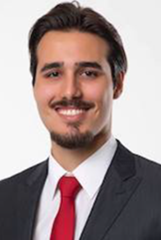
Residency: Shirley Ryan Ability Lab
Medical School: Universidad Central del Caribe School of Medicine
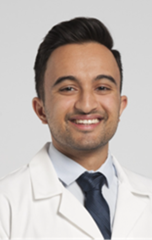
Residency: Cleveland Clinic Foundation
Medical School: Chicago College of Osteopathic Medicine of Midwestern University
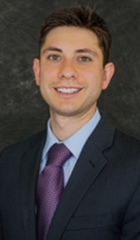
Residency: University of Chicago Medical Center/Schwab Rehabilitation
Medical School: University of Texas Rio Grande Valley School of Medicine

Residency: Emory University School of Medicine
Medical School: Virginia Commonwealth University School of Medicine

Residency: Beth Israel Deaconess Medical Center
Medical School: Medical College of Georgia at Augusta University
Class of 2025

Residency: Spaulding Hospital/Harvard Medical School
Medical School: Michigan State University College of Human Science

Residency: University of Porto, Centro Hospitalar Universitario de Sao Joao
Medical School: Universidade de Coimbra Faculdade de Medicina

Residency: University of Chicago Medical Center
Medical School: University of Iowa Carver College of Medicine
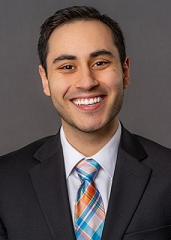
Residency: Loyola University Medical Center
Medical School: Northeast Ohio Medical University
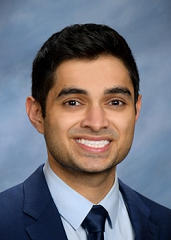
Residency: University of Michigan Health System
Medical School: Oakland University William Beaumont School of Medicine
Class of 2024

Residency: University of Porto, Centro Hospitalar Universitario de Sao Joao
Medical School: Universidade de Coimbra Faculdade de Medicina
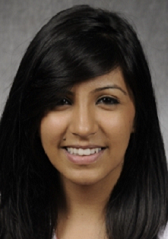
Residency: Icahn School of Medicine at Mount Sinai
Medical School: University of Illinois College of Medicine

Residency: Ohio State University Hospital
Medical School: University of Pittsburgh School of Medicine
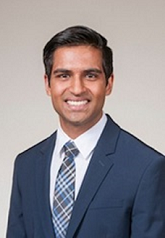
Residency: NewYork-Presbyterian
Medical School: University of Missouri, Kansas City School of Medicine

Residency: Summa Health System
Medical School: Northeast Ohio Medical University
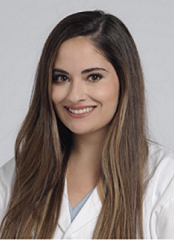
Residency: Cleveland Clinic Foundation
Medical School: Northeast Ohio Medical University
Class of 2023

Residency: University of Nebraska
Medical School: University of Nebraska
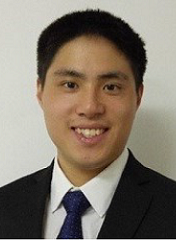
Residency: University of Texas Health Science Center
Medical School: Ohio State University College of Medicine
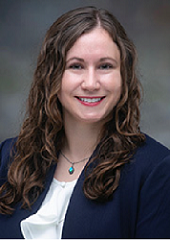
Residency: University of Texas Health Science Center
Medical School: Chicago Medical School at Rosalind Franklin University of Medicine & Science
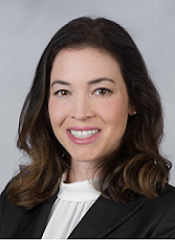
Residency: Yale-New Haven Medical Center Program
Medical School: University of Illinois College of Medicine
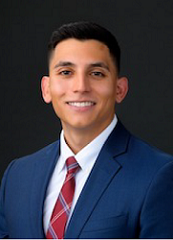
Residency: Loyola University Medical Center Program
Medical School: Loyola University Chicago Stritch School of Medicine
Graduate Research Resources
We offer a wide range of resources, mentorship opportunities and training to help our residents and fellows excel as physician-scientists. Explore all of the resources and hear from trainees who are making research a major part of their career development plans.